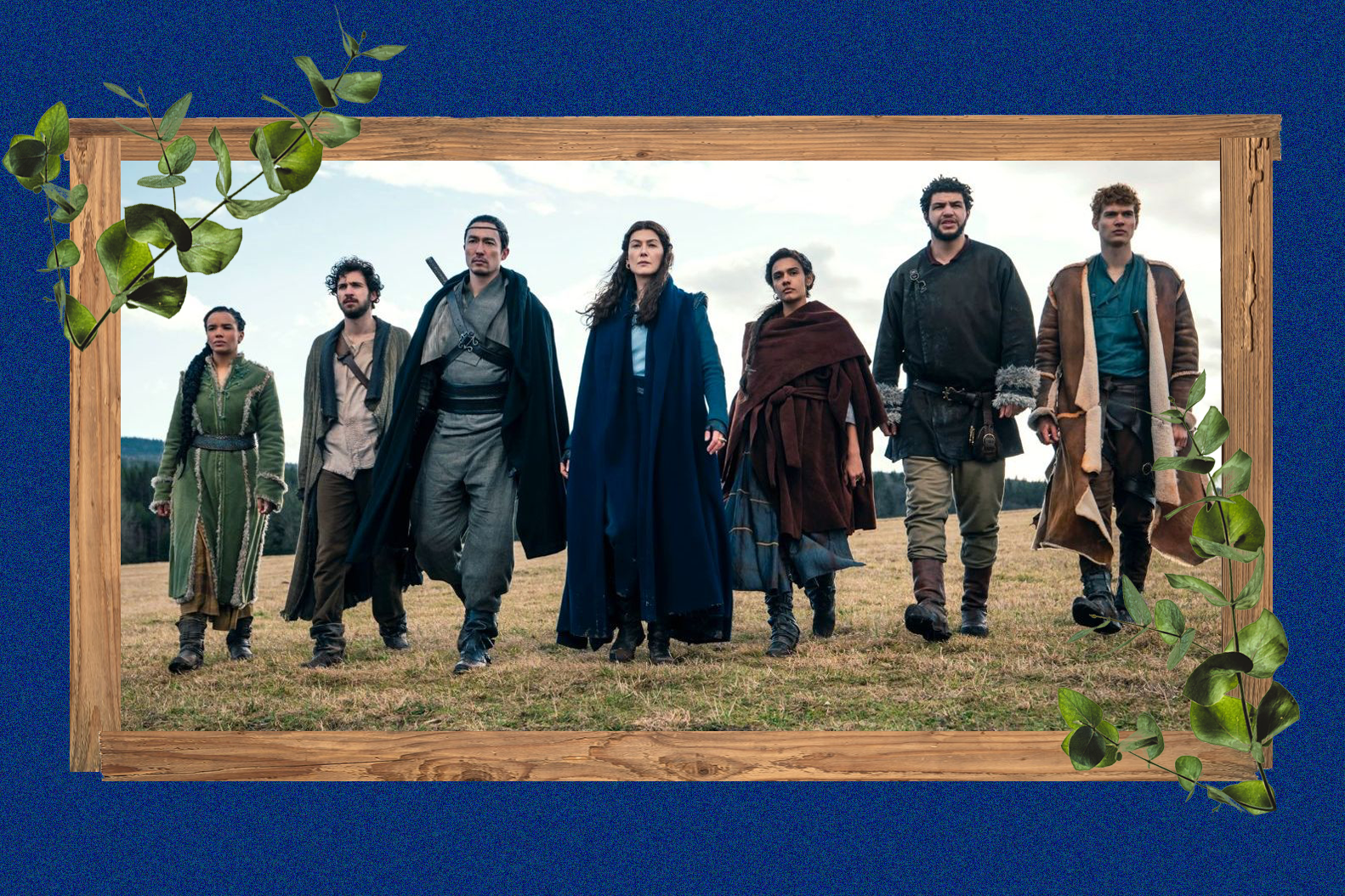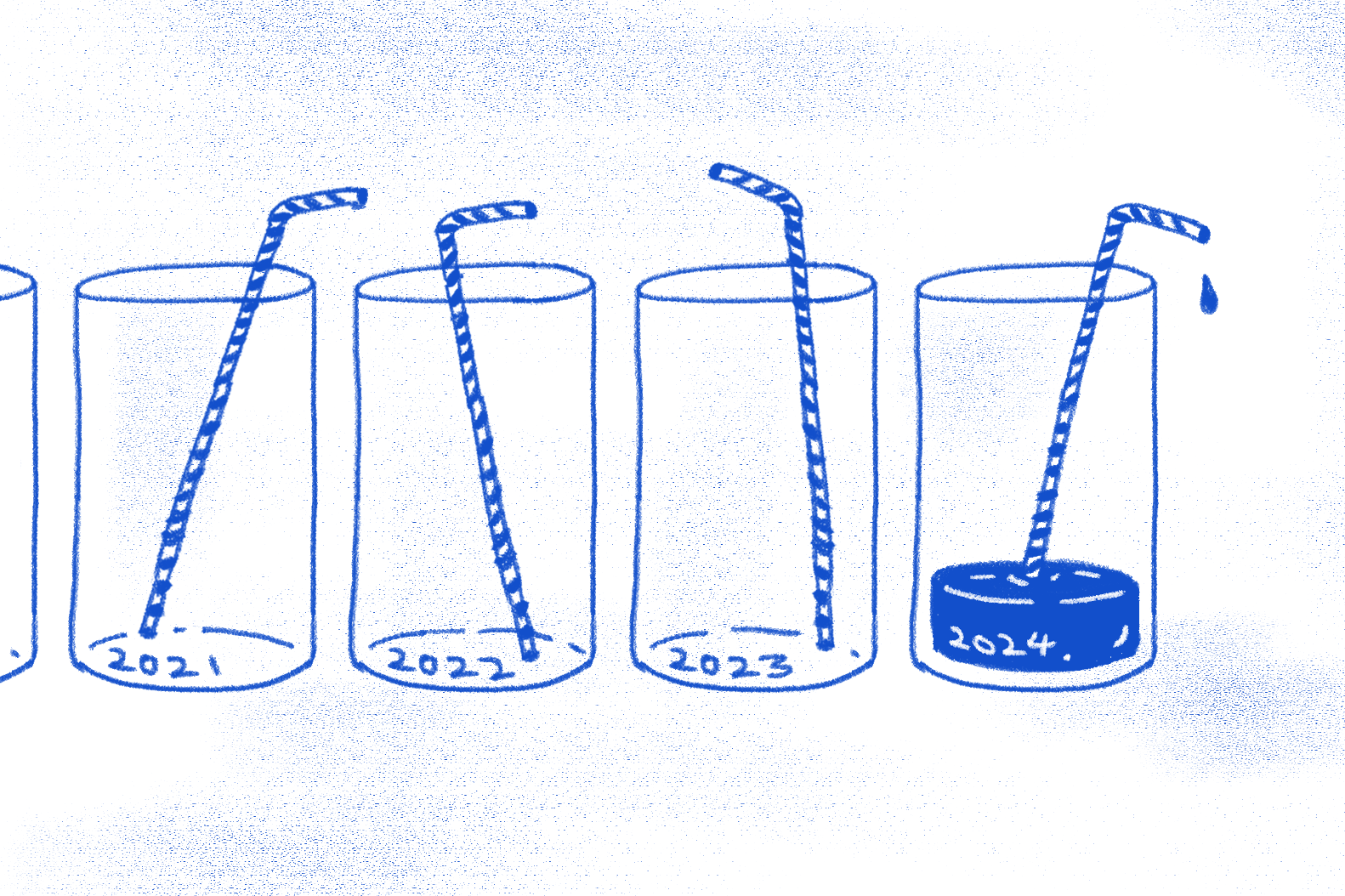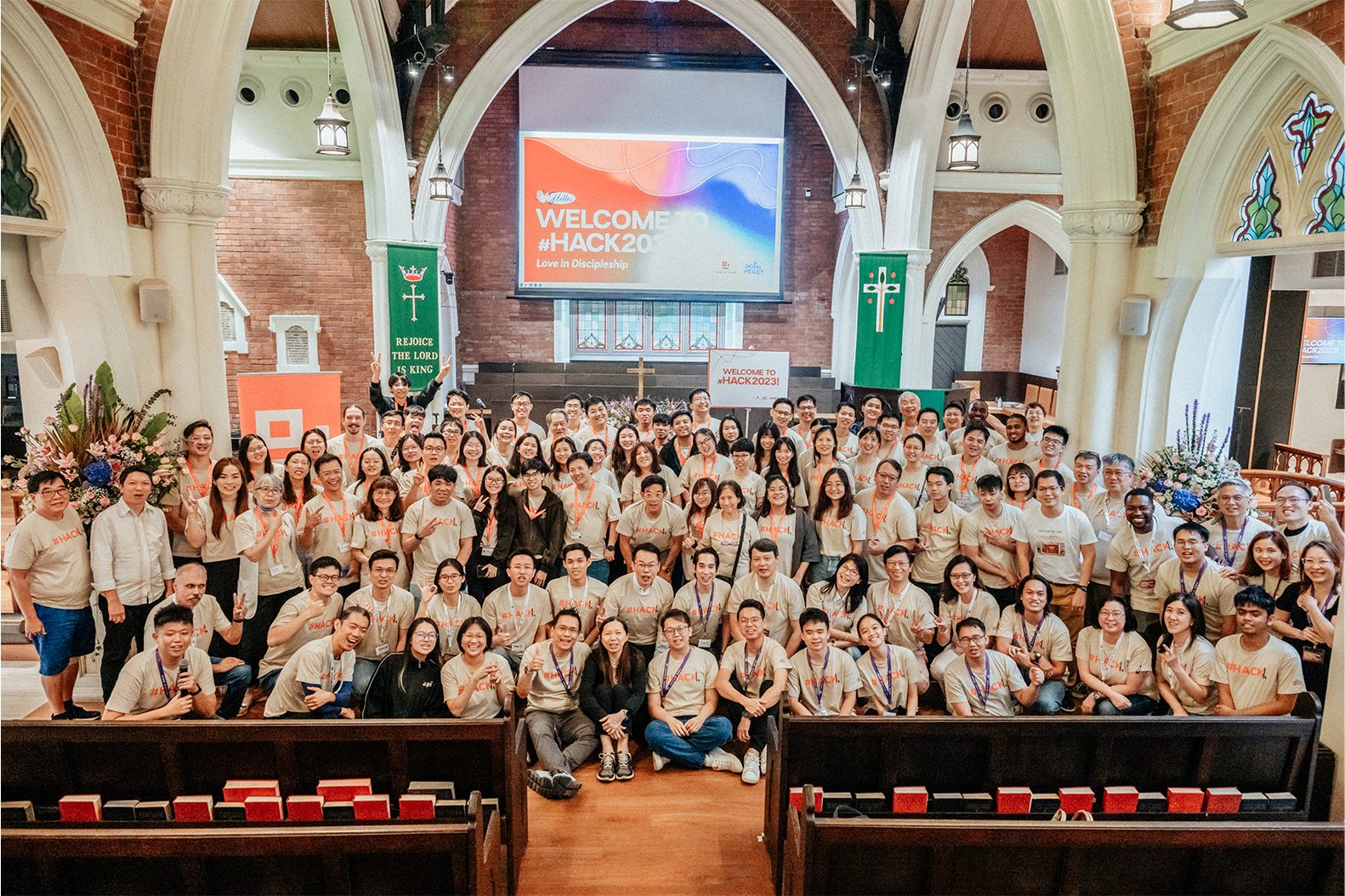It’s about time.
Those were my first thoughts when I heard about the TV series production of The Wheel of Time (WoT).
The high fantasy series by Robert Jordan is one of the bestselling fantasy series since Lord of the Rings and was one of my favourite reads growing up.
I grew up alongside the characters in the 2000s waiting for new books to be released and for the series to be completed.
The coming of age of youths led by wise mentors, going on quests, and a chosen one who will save the world. This might seem like any stereotypical fiction plot (Lord of the Rings, Harry Potter, Star Wars, et cetera), but what makes WoT a uniquely enjoyable read are the relatable characters, detailed world-building, fascinating cultures and epic journeys, making it easy to immerse one’s self in the story.
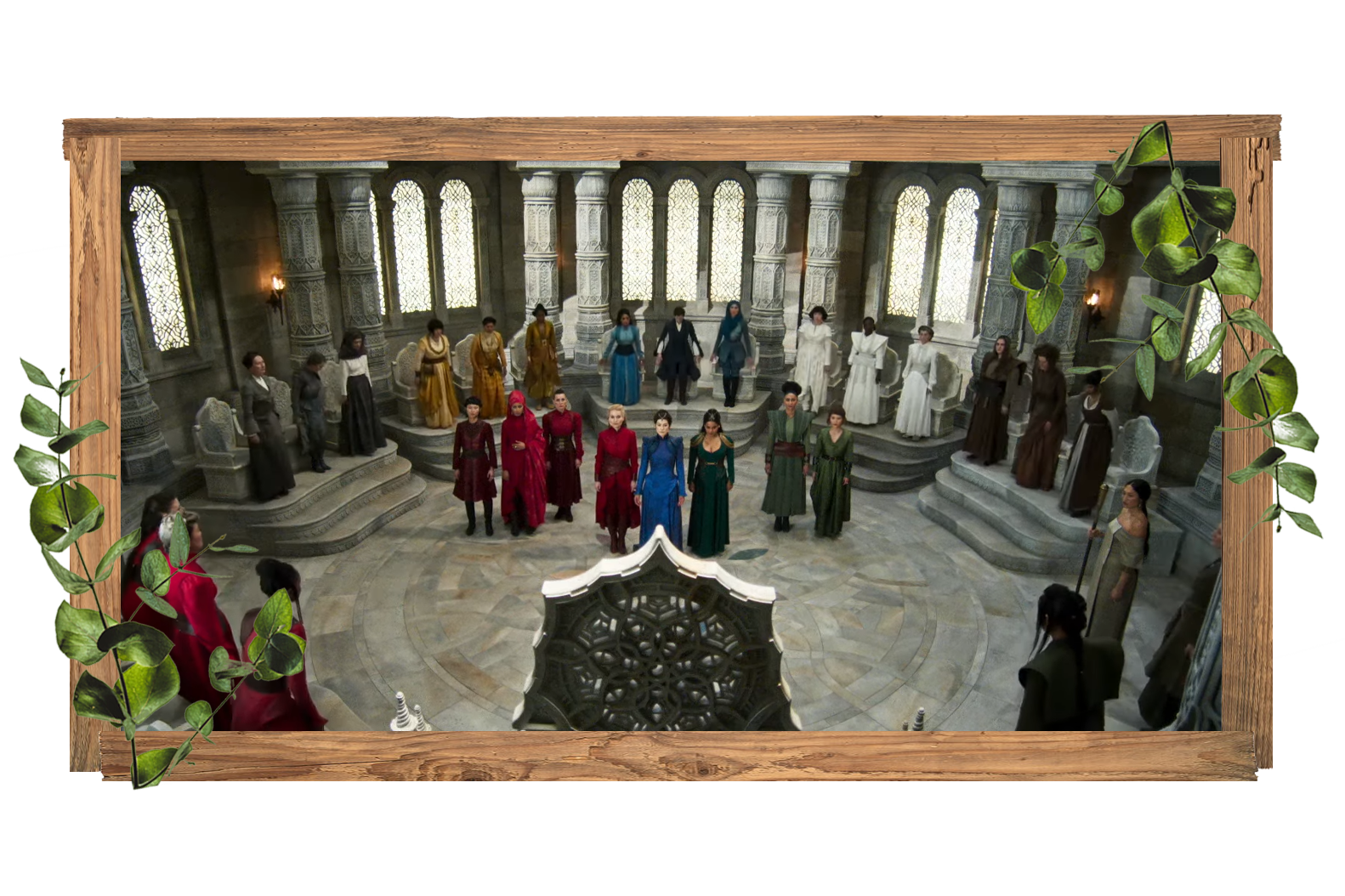
WoT is a production by experienced producers, solid directors and with Amazon’s massive $80 million budget (double the per-episode cost of the first season of Game of Thrones).
Most of the cast are relatively unknown besides Rosamund Pike (Gone Girl and Die Another Day) who plays the role of a mysterious and powerful woman, seeking the fulfilment of prophecy in one of five young villagers.
This is by no means a bad thing as most of the cast are committed for the long haul if the show becomes a success.
With a second season already confirmed ahead of the official release, these factors make The Wheel of Time a serious contender to be THE TV fantasy series of this decade.
IT’S GOING TO TAKE TIME
WoT is a mammoth tale that took two authors 20 years to complete, with 15 books and a word count of more than 4.4 million words.
In comparison, the Harry Potter series goes just over a million words, and the Bible translates into around 750,000. The entire series would take about 20 days of non-stop listening for audiobooks!
While the TV series is reported to move at a much faster pace than the book’s slow build-ups and lengthy journeys, it will still take a while for such a lengthy adventure to be told.
THEMES IN THE WHEEL OF TIME
Robert Jordan, the main author of the books, described himself as High Church, Episcopalian but also an avid student of world religions.
WoT reflects numerous elements of western and eastern religions. Some of these include Taoism’s concept of balance and duality and deep respect for nature that can be found in Norse and Celtic paganism.
WoT’s creation story also bears a strong resemblance to Abrahamic traditions. The “Creator” represented by Light, is opposed by the “Dark One” or “Shaitan”, which is the Arabic word for Satan. It’s a battle between Light and Dark. Good and Evil.
“The Creator had made the world and then left humankind to make of it what they would, a heaven or the Pit of Doom by their choosing” (Crossroads of Twilight)
The “Creator” in WoT is deistic, distant and aloof, leaving creation to fend for itself against the “Dark One” – the main source of conflict in the series.
This of course contrasts our Creator God of the Christian faith. Unlike the distant “Creator” in WoT, the God of the Bible loves His creation and is involved to save and redeem creation to Himself.
“You are the Lord, you alone. You have made heaven, the heaven of heavens, with all their host, the earth and all that is on it, the seas and all that is in them; and you preserve all of them; and the host of heaven worships you.” Nehemiah 9:6 ESV
TIME FOR A SAVIOUR
“The Wheel of Time turns, and Ages come and pass, leaving memories that become legend. Legend fades to myth, and even myth is long forgotten when the Age that gave it birth comes again.” (The Path of Daggers)
One of the biggest concepts is the Wheel of Time itself, a concept from Hinduism and Buddhism that time is not linear but cyclical. The present seems to reflect the past and we can expect repetitions in the future.
A key premise of the books and the show is the “Dragon Reborn”, a saviour who is repeatedly reborn or reincarnated to save the world.
There is an incredible amount of foreshadowing, recounts of the past, prophecies and the fulfilment of prophecies. Concepts that are not foreign to the Bible, which points to the saviour of mankind, Jesus.
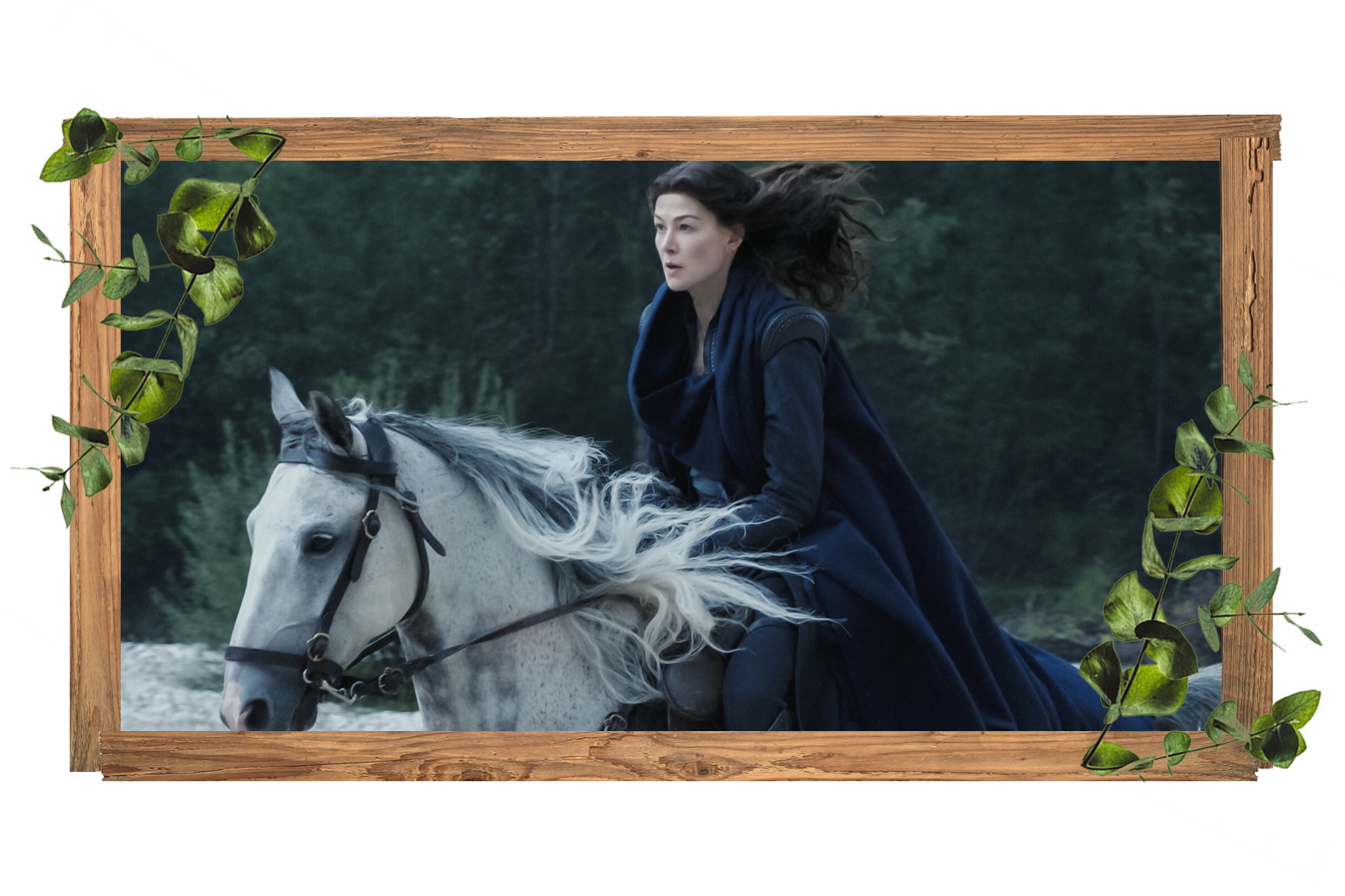
The saviour in the WoT needs to be continually reincarnated and must sacrifice himself repeatedly to save the world.
Yet one shall be born to face the Shadow,
born once more as he was born before,
and shall be born again, time without end.
The Dragon shall be Reborn,
and there will be wailing and gnashing of teeth at his rebirth. (The Prophecies of the Dragon)
The premise of a distant “Creator” does make for riveting fantasy. But such uncertain hope causes me to be thankful for the certain hope I have in Jesus the perfect saviour. God incarnate, who fulfilled all prophecies and sacrificed Himself to save the world for now and all eternity.
“For unto us a Child is born,
Unto us a Son is given;
And the government will be upon His shoulder.
And His name will be called
Wonderful, Counselor, Mighty God,
Everlasting Father, Prince of Peace.” (Isaiah 9:6)
ANOTHER TIME?
Many fans have been wondering whether WoT will work as a television show — will it be a different WoT?
Many great books fail to be a success on the screen, especially lengthy book series with multiple storylines.
Plotlines and story arcs have to be adjusted and trimmed; characters are tweaked, totally removed or even invented for the plot to flow.
While early reviews have been generally favourable, some differences from the books are worth mentioning.
A decision to age up the main characters was made to give the TV adaptation a less Young Adult fiction vibe.
Perhaps also to ride on the success of the mature themes in Game of Thrones.
These changes have led to scenes of violence, sex and nudity not found in the books. They have also have served to complicate the values and story of some main characters.
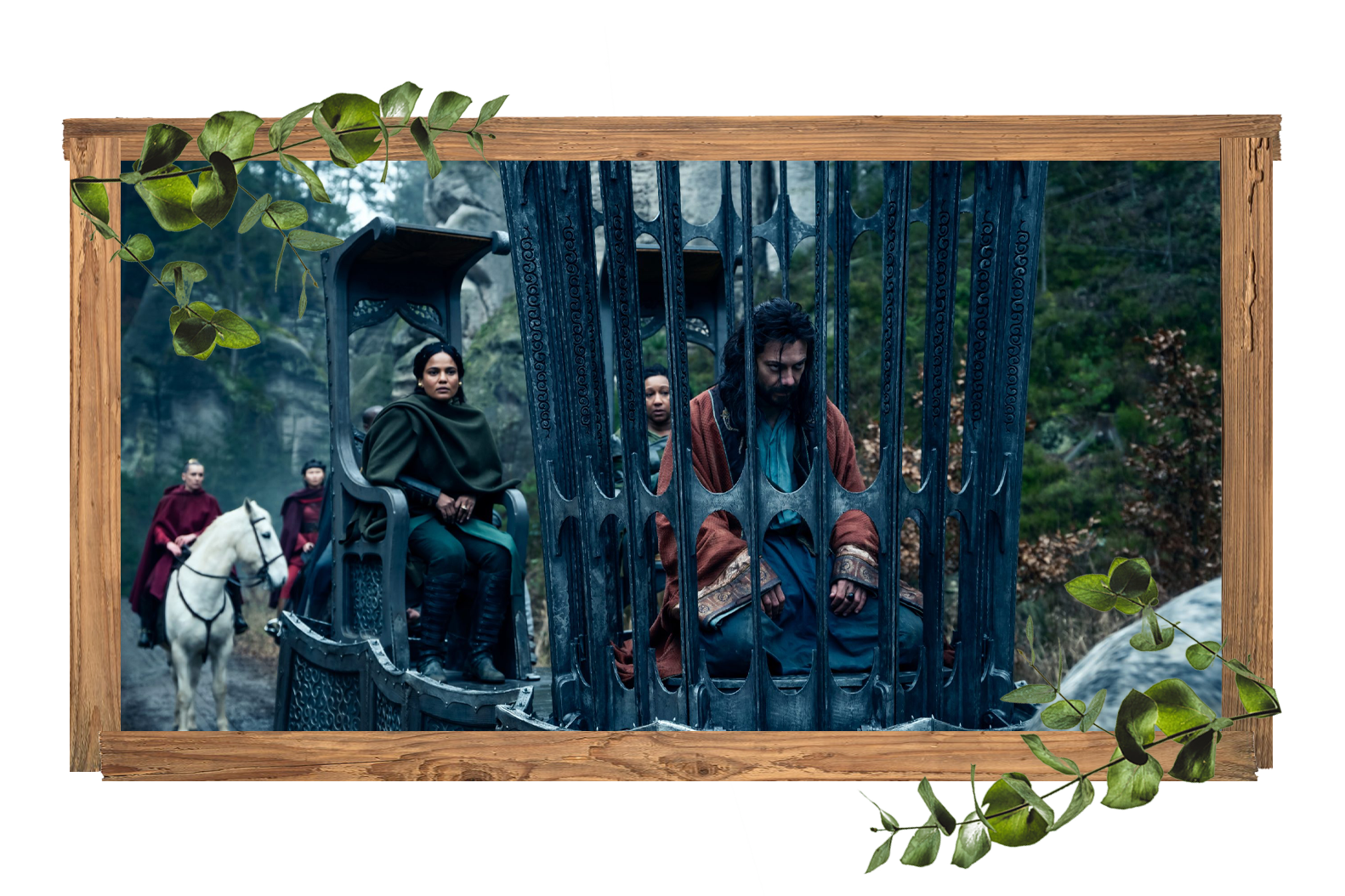
Another change was to increase the potential Dragon Reborn candidates to include women in a bid to “update” the story.
A strange decision, as both male and female characters were well balanced in the books, with many strong female characters, a magic system that favours women and many matriarchal societies.
It would be interesting to see how western views on gender today would play into this adaptation.
ONLY TIME WILL TELL
No television series can be 100% faithful to the books, the question is whether those adaptations will add to or hinder the show.
Critics who viewed the first six episodes say that like any good fantasy story, season one feels like only the start of an adventure.
With season two confirmed even before the launch, this bodes well for audiences who are in for the long run.
If you’re interested in catching it, you can watch the first three episodes of Wheel of Time on Amazon Prime from 19 November 2021.
All screenshots sourced from “Wheel of Time”.
- Have you read the WoT books? What do you think of the series?
- Just for fun, what are some other biblical parallels you can see between the books and the Bible?
- Looking forward to the TV adaptation? Watch with discernment 🙂


